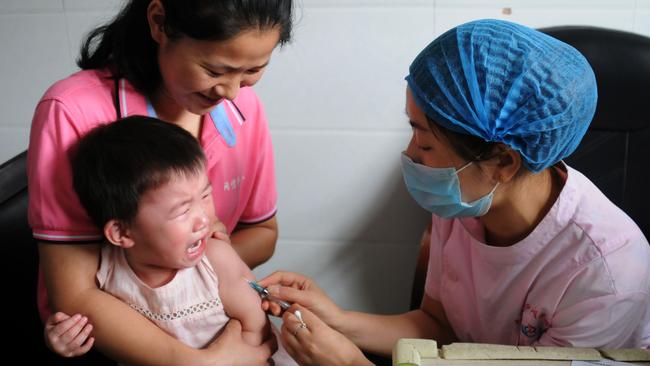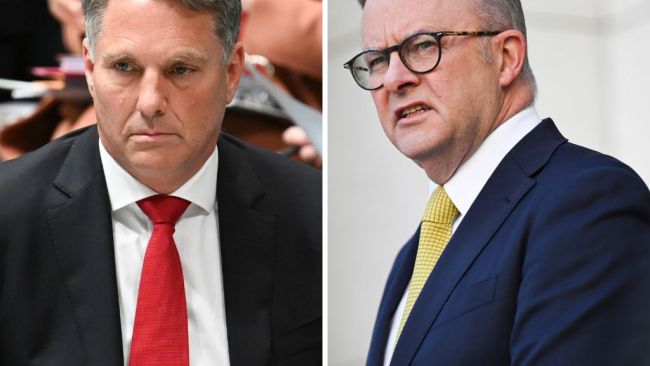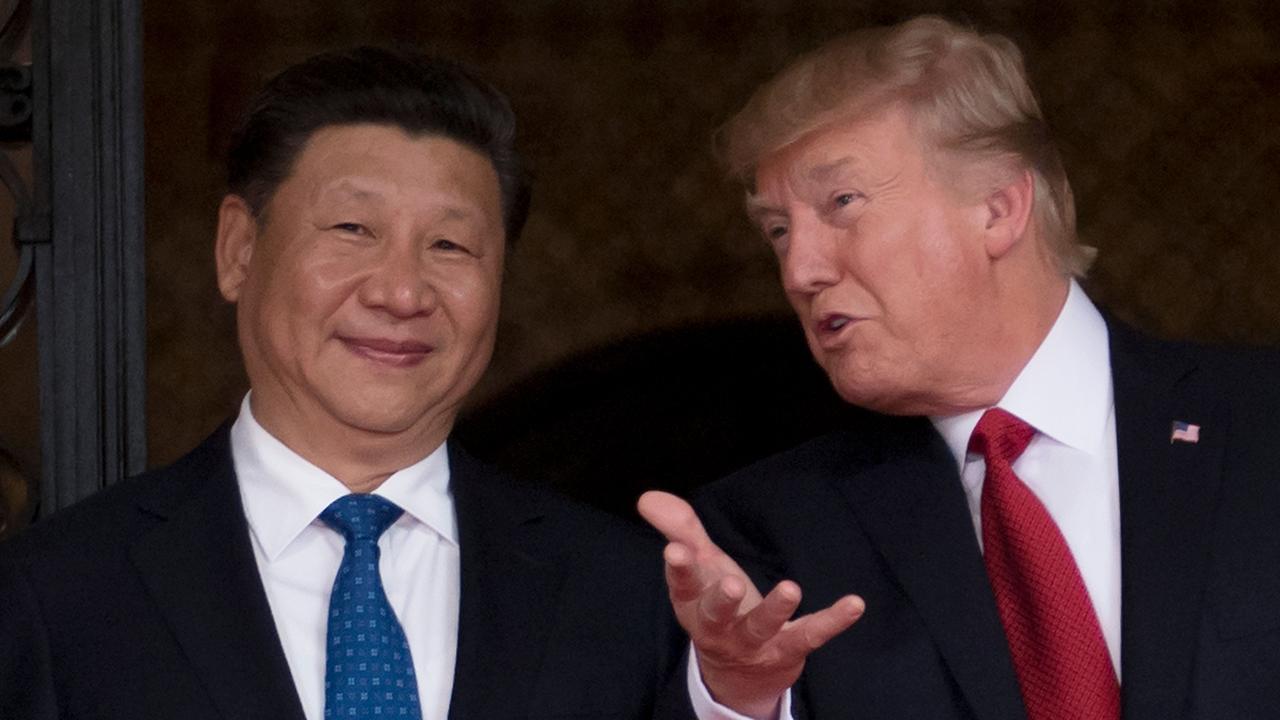High-ranking Chinese officials sacked over vaccine scandal
Almost 50 Chinese officials have been punished as a result of last year’s defective vaccine scandal.

Almost 50 officials have been punished following a scandal involving out-of-date and untested vaccines being sold in northeastern China.
The scalps include Wu Zhen, a former deputy head of the now defunct China Food and Drug Administration, who has been expelled from the ruling Chinese Communist Party.
A statement by the party’s anti- corruption watchdog, the Central Commission for Discipline Inspection, and the National Supervisory Commission on Sunday said 48 officials had been punished. Mr Wu was among six high- ranking officials sacked or asked to resign as a result of the investigation by the two organisations.
A further 42 lower-level officials were punished, including officials in the provincial products medical administration in northeastern Jilin, where the vaccine maker, Changchun Changsheng Life Sciences, was based.
The action against officials came after a $US1.3 billion ($1.8bn) fine levied on Changchun Changsheng, following findings it had used expired materials, mixed different batches of products, failed to test them properly and falsified and destroyed records to hide its misconduct.
The company was ordered to suspend vaccine production last July after news of its wrongdoing emerged, and was also stripped of its licences to make vaccines and drugs by the State Drug Administration. The falsified production and inspection records were found to date back as early as 2014.
Changchun Changsheng chairwoman Gao Junfang was arrested and 14 executives were barred from working in the pharmaceuticals industry.
The scandal was another blow to China’s efforts to clean up its health products and food industry with stricter controls to prevent fraud, product substitution and use of poor materials. Chinese parents are still nervous about product safety issues following a scandal in 2008 when a company mixed melamine, a kind of resin, in baby formula, resulting in the death of six babies with thousands more falling ill.
Chinese President Xi Jinping ordered an investigation into the scandal last July, describing the company’s actions as “vile in nature and shocking”. At the time, Changchun Changsheng was China’s second-largest rabies vaccine maker and its second-largest producer of chickenpox vaccine.
But concerns among Chinese parents about the standard of vaccines given to their children have continued. In January angry parents in Jinhu county in Jiangsu province, north of Shanghai, staged protests outside government buildings after learning that their children had been given out- of-date polio vaccines.
In Hebei province last year, parents complained their children had been given the wrong vaccines in an immunisation program. On the weekend it was announced two health officials in the Hebei capital of Shijiazhuang had been sacked and a third, the head of the community clinic that had given the vaccines, was arrested.
In November, following the public outcry over Changsheng, the government released the first draft of a law that would allow people to sue the manufacturer in the case of death or serious injury from a faulty vaccine.



